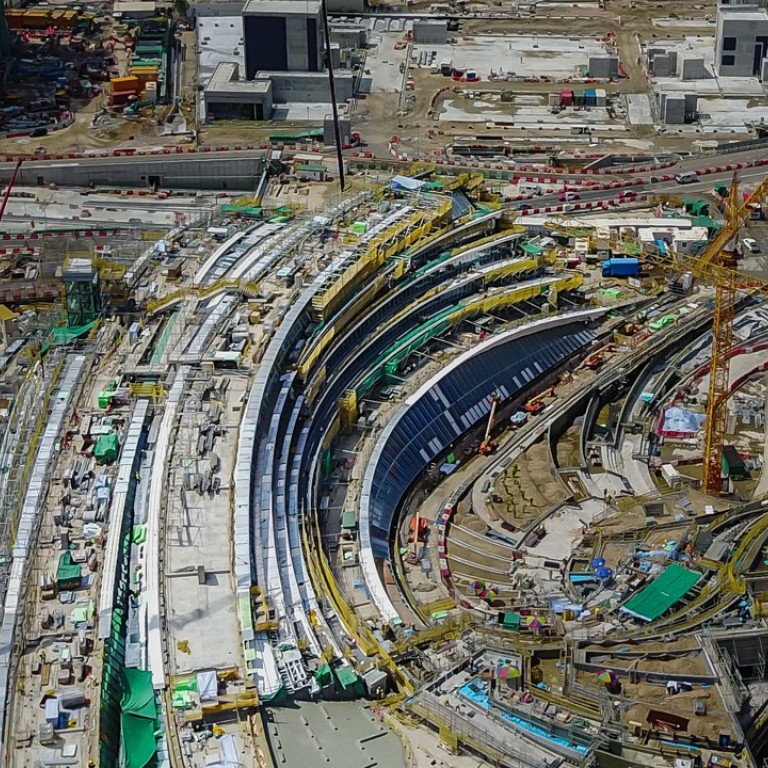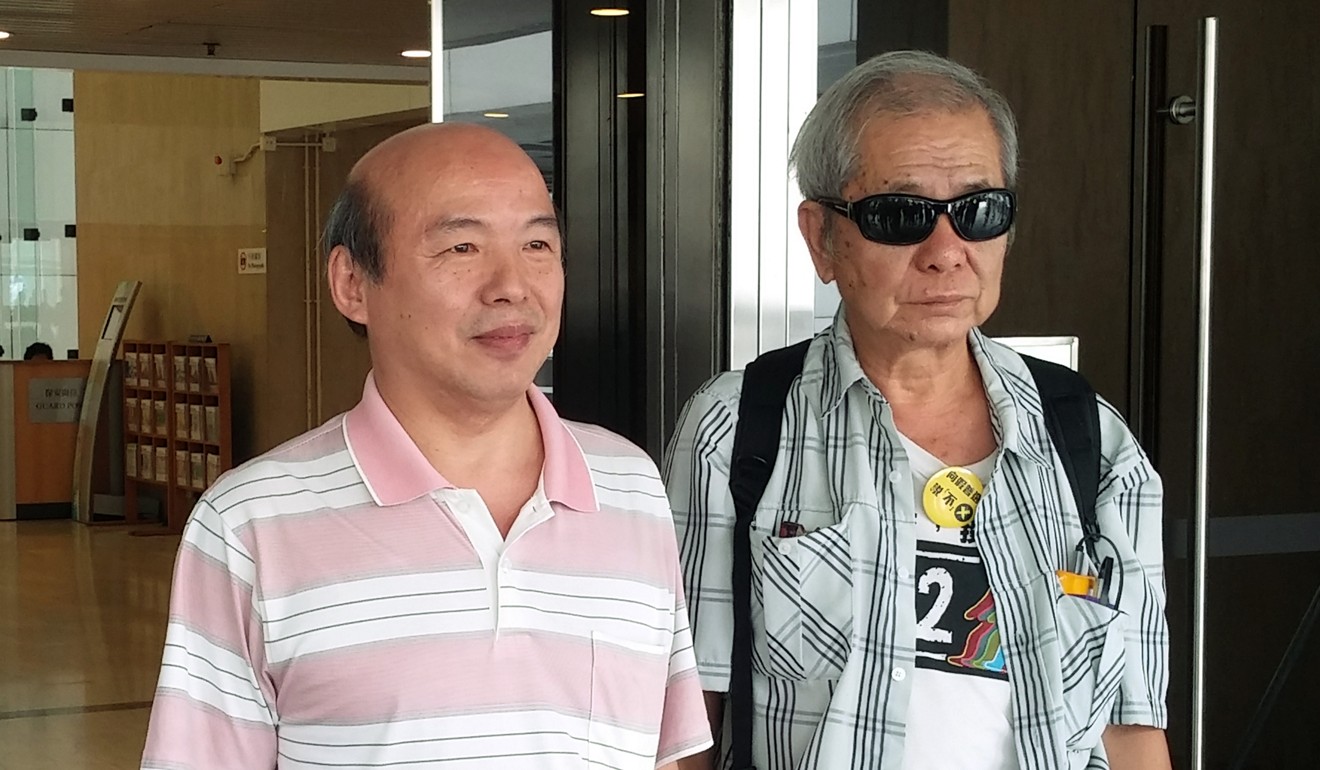
Cross-border railway will help Hong Kong in long-term, transport chief says, after drop in projected returns
Minister defends project as a fourth legal challenge is mounted claiming joint checkpoint in the city breaches the Basic Law
Hong Kong’s transport chief has defended the fall in projected economic returns of the cross-border railway project, which is facing its fourth court challenge.
Critics of the express train line say an arrangement to give mainland China jurisdiction over part of the station at West Kowloon is unconstitutional.
Minister Frank Chan Fan urged the public to consider the long-term benefits when viewing the Guangzhou-Shenzhen-Hong Kong Express Rail Link.
“The economic value of a large-scale cross-border infrastructure project should not be gauged by today’s estimates but the situation 10, 20 or even 30 years later,” he said.
He was responding to media reports on Thursday that the government had scaled down the economic internal rate of return, calculated based on the cost of the railway, from 6 per cent to 4 per cent.
Authorities also lowered their prediction of business travellers who would use the service – to 23 per cent of all passengers, down from the 36 per cent projected in 2009.
Having a joint immigration checkpoint means that mainland officials will enjoy almost full jurisdiction in a quarter of the 105,000 square-metre complex leased to the mainland. Opponents argue that would be an encroachment of the city’s mini-constitution, the Basic Law.
Citing figures from the Transport and Housing Bureau, media reports also suggested on Thursday that the latest projections showed the number of Hongkongers as a whole using the train would be lower than originally expected.
The government expects 58.4 per cent of daily passengers – about 63,800 commuters – to be Hong Kong residents, down from about 70 per cent in the 2009 forecast. Passengers not living in Hong Kong, however, would surge from about 30,000 a day to more than 45,000, according to the official projections.
“The numbers were actually presented to the Legislative Council back in 2015; they’re not new,” Chan said.
He added the figures and composition of the passengers could vary. But citing the opening of the MTR railway service in the city nearly 40 years ago, he said many opposed it at first but now embraced it.

In his writ, Cheung Tak-wing asked the High Court for an order to stop the Hong Kong government from reaching out to Beijing, to avoid the issue getting out of the hands of local courts.
Legal experts previously told the Post that any judicial challenges against the project would face an uphill battle as matters would ultimately involve a decision from Beijing, thereby depriving the city’s top court of its final say.
The Hong Kong government said after the zone was leased it would no longer be part of the city, so the Basic Law would not apply. It is seeking the blessing of the National People’s Congress Standing Committee, under Article 20 of Basic Law, to grant Hong Kong the power it does not already have to start the lease.


